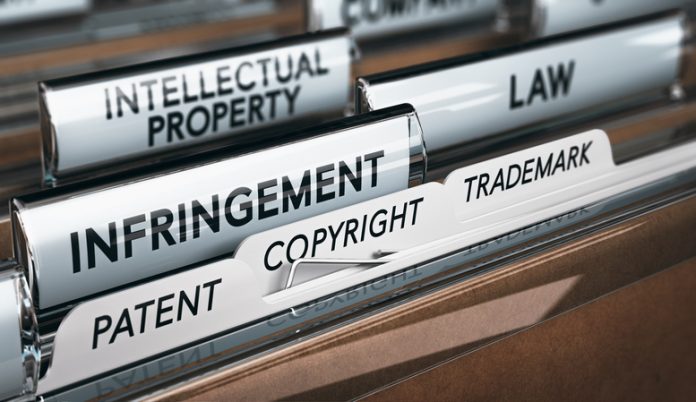The U.S. International Trade Commission (USITC) has launched an investigation into the proposed expansion of a trade agreement waiver implemented during the COVID-19 pandemic.
The Agreement on Trade-Related Aspects of Intellectual Property Rights (TRIPS), which establishes regulatory standards for intellectual property (IP) among members of the World Trade Organization (WTO), was waived during the global pandemic.
In October 2020, South Africa and India proposed setting aside IP rights to expedite the manufacture of COVID-19 vaccines. After agreeing to the waiver, the WTO proposed expanding it to include COVID-19 diagnostics and therapeutics. Opposition was swift. The U.S. Chamber of Commerce’s Global Innovation Policy Center pleaded with the Biden administration to oppose the change.
The expansion was opposed by major pharmaceutical manufacturers, patent rights advocacy groups, and analysts who say it is a threat to continued U.S. investment in the development of patentable medical technologies.
A report on the proposed TRIPS waiver expansion is due to the U.S. Trade Representative on October 17.
‘[Waiver] Not Limited to Vaccines’
Opponents of the expanded waiver point out that demand for COVID-19 vaccines has plummeted.
Currently, global vaccine supply vastly outstrips demand, and nonprofit organizations, such as the International Vaccine Alliance, called Gavi, stopped supplying COVID shots to most nations by December 2022.
In May 2021, 16 U.S senators, including Tom Cotton (R-AR), Mike Lee (R-UT), and Ben Sasse (R-NE), wrote a letter to Commerce Secretary Gina Raimondo and U.S. Trade Representative Katherine Tai, urging the administration to withdraw support of the original TRIPS waiver.
“The waiver, which is not limited to vaccines, will do nothing to end this global pandemic,” wrote the senators. “Instead, it will undermine the extraordinary global response that has achieved historically remarkable results in record time and our nation’s global leadership in the technologies, medicines, and treatments of the future.”
‘Unconscionable to Remove Protections’
The waiver is unjustified, says Walter G. Copan, Ph.D., vice president for research and technology transfer at the Colorado School of Mines.
“It is particularly unconscionable to remove protections afforded to innovations in diagnostics and therapeutics after the World Health Organization has formally declared that the COVID-19 pandemic phase is over,” said Copan. “Hence, no credible justification for the waiver exists.”
There is no reason to waive IP rights when major drug makers already provide doses to developing nations in sufficient volume and at a discount, says Devon Herrick, a health economist and former senior fellow at the National Center for Policy Analysis.
“The United States is the world leader in the development of new drugs and drug therapies,” said Herrick. “With the worst of the pandemic over, there is no reason to extend the TRIPS waiver and deny protection for intellectual property. Furthermore, drug makers have been willing to sell to poor nations at drastically reduced costs. It makes little sense than to allow poor countries to buy unlicensed generic drugs made abroad.”
‘Set a Devastating Precedent’
Copan said there are not only generic risks to IP rights but also national security risks when global competitors like China can freely pilfer U.S. intellectual property by claiming “developing nation” status.
“Expanding the TRIPS waiver to COVID-19 diagnostics and therapeutics would set a devastating precedent for government nullification of Constitutionally-guaranteed IP rights in the future,” said Copan.
“IP-intensive industries support over 60 million U.S. jobs, and further eroding the reliability of America’s IP protections would clearly threaten many of them,” said Copan. “However, the threat goes well beyond future returns on R&D investment. Globally waiving the rights of U.S. inventors risks handing hard-earned innovations to America’s economic competitors, including China.”
“Waiver Merely ‘Encouraged’ China”
The expansion of the waiver endangers all IP rights, says Copan.
“The WTO’s vaccine IP waiver merely ‘encouraged’ China, as a ‘developing nation’ not to seize U.S. innovations, and the proposed expansion of the TRIPS waiver opens the door to a disregard for the rights of innovators everywhere,” said Copan.
The waivers are not only unnecessary but pose a risk to ongoing investment in medical research and development, says the Center for Innovation and Free Enterprise (CIFE), a project of Americans for a Balanced Budget, Inc., which opposed the expanded waiver in a press release in April.
“Intellectual property rights are essential for promoting innovation, investment, and economic growth,” said the CIFE statement. “The TRIPS agreement already provides adequate flexibilities to ensure access to medicines in times of public health emergencies.”
Kevin Stone (kevin.s.stone@gmail.com) writes from Arlington, Texas.




















